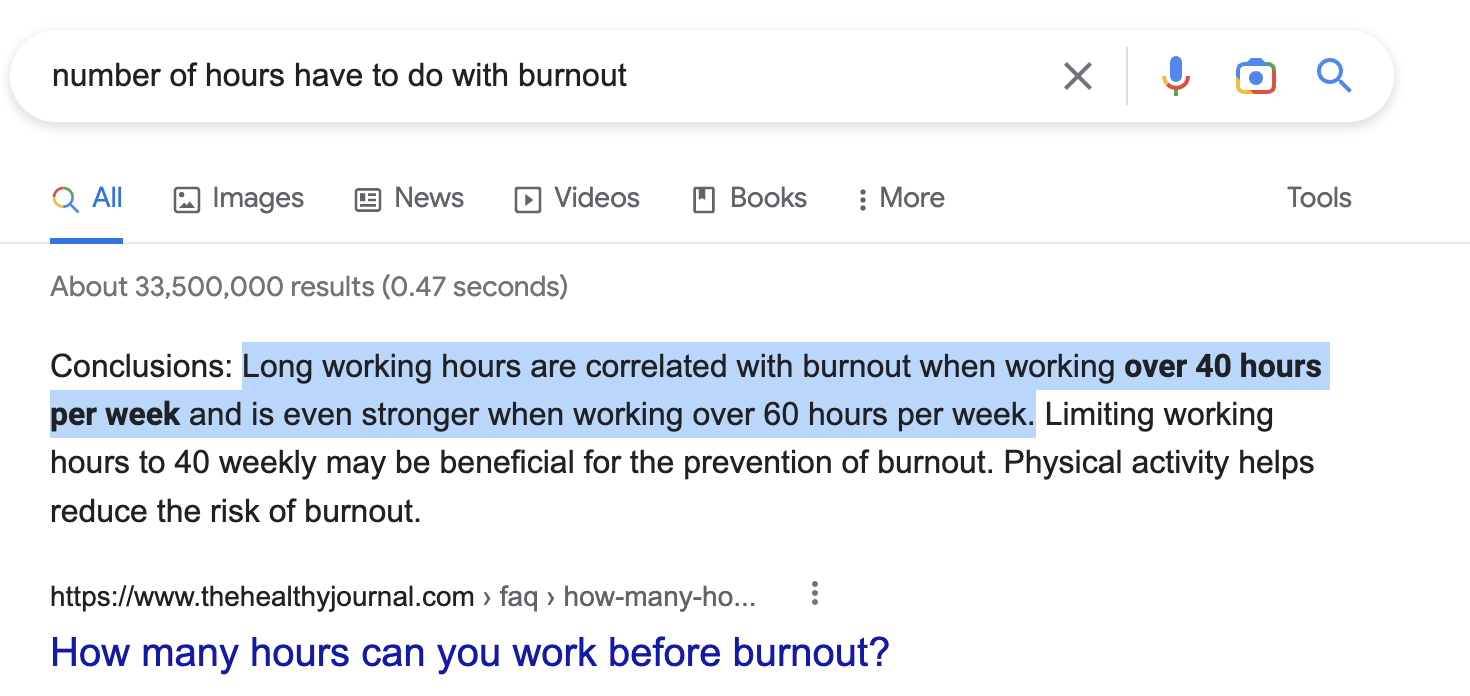As a teenager and in my young adult years I spent much of my time at school (work), volunteering (work) studying (work), playing sports(work), working a summer job (work), etc…
Though the only times these felt like work was when I didn’t want to do them.
Progressively I find myself taking on more and more, yet I often feel like I’m working less and less.
But that begs the question…If you like what you do, are you even working anymore?
And the question I’m most interested in is this: Is number of hours worked a good measure of predicatability as to whether someone is going to experience burnout?
To be fair I’m pretty sure the answer is a somewhat yes. YIKES!

That being said, we know from stats class that correlation ≠ causation
And we have countless counter examples of people who are so passionate about their work that they will pour absurd amounts of time to improve their craft or business with very few visible signs of burnout.
And let’s be honest…If this is the litmus for what healthy sustainable work is supposed to be then most graduate school programs would never pass the test. And you could never do anything like work a full time job and go back to school or earn a certificate at the same time without violating some univeral law of burnout.
There seems to be more talk about the number of hours worked and not enough discussion about the sustainability of the work. I recon if you have bad managers, mean coworkers and short hours you will burn out a lot faster than the person happily working 50 hours a week in their dream job.
Burnout is not simply a function of the number of hours worked but also the intensity of the work and the desire (or lack thereof) to do the work. Bad managers and mean coworkers would in theory decrease ones desire to be at work and would also make getting work done harder.
Beyond what society deems healthy and acceptable we all have our own internal tolerance of what we each are willing or able to endure. Spending 20 hours a week on something I don’t want to do is 5x harder than spending 35-50 hours on something I enjoy doing or find meaningful.
Maybe we should start talking less about the # of hours worked and more about whether or not those hours are meaningful and sustainable for people. ie: if I need to work 50 hours and want to … is that really all that bad?
For me, #workaholism has always been about the inability (sometimes caused by work) to set or enforce boundaries between work activities and engagements outside of work to the point that it spills into other facet of your life. ie: it bleeds into your family time, community time, extra circulars, etc… If you work 60 hours and want to and also have enough time to live life as you please I’d say that is a pretty sustainable “work life balance”. Do you agree?
